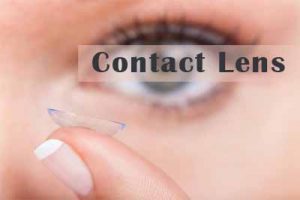- Home
- Editorial
- News
- Practice Guidelines
- Anesthesiology Guidelines
- Cancer Guidelines
- Cardiac Sciences Guidelines
- Critical Care Guidelines
- Dentistry Guidelines
- Dermatology Guidelines
- Diabetes and Endo Guidelines
- Diagnostics Guidelines
- ENT Guidelines
- Featured Practice Guidelines
- Gastroenterology Guidelines
- Geriatrics Guidelines
- Medicine Guidelines
- Nephrology Guidelines
- Neurosciences Guidelines
- Obs and Gynae Guidelines
- Ophthalmology Guidelines
- Orthopaedics Guidelines
- Paediatrics Guidelines
- Psychiatry Guidelines
- Pulmonology Guidelines
- Radiology Guidelines
- Surgery Guidelines
- Urology Guidelines
New contact lens may treat corneal melting and prevent blindness

New contact lens may treat corneal melting and prevent blindness.
Corneal melting is a significant cause for blindness worldwide.Researchers at the University of New Hampshire have created hydrogel to make contact lense to treat corneal melting and consequent blindness.
The incurable eye disease can have a number of different causes including chemical burns, autoimmune diseases, and some surgical procedures. The patient's cornea melts due to the uncontrolled production of certain zinc-dependent enzymes called matrix metalloproteinases (MMPs) by the patient’s immune cells in the cornea. To help prevent this, the researchers developed a new hydrogel that deactivates those enzymes by removing the zinc ions.
Also Read: New Eye infection in contact lens wearers that can cause blindness
In the study published in the journal ACS Biomaterials Science & Engineering, conducted by UNH researchers along with researcher Jung-Jae Lee from the University of Colorado Denver Campus outlined how the hydrogel deactivates MMP-1, MMP-2, and MMP-9 which are the major factors in corneal melting.
“Most of the current MMP inhibitors used to treat this condition work by binding to the zinc ions within the MMPs,” said Kyung Jae Jeong, assistant professor of chemical engineering at UNH. “However, once injected into the body, the MMP inhibitors travel through the bloodstream and entire body and can cause severe side effects because they are binding with and deactivating the zinc ions in other tissue. Our hydrogel works entirely different because it is localized, just in the eye, and deactivates MMPs by eliminating the zinc ions from the cornea. And since it would be a contact lens, if there were any issues, the patient would simply remove it.”
Also Read: Sleeping in your contact lenses -You may lose your eyesight
The research was done in vitro and ex vivo (on extracted cornea tissue) and suggests that the new hydrogel could be a viable therapeutic option for treating corneal melting. The end goal is to make the hydrogel into a contact lens that would allow more localized treatment of the eye and avoid side effects in the rest of the body.

Disclaimer: This site is primarily intended for healthcare professionals. Any content/information on this website does not replace the advice of medical and/or health professionals and should not be construed as medical/diagnostic advice/endorsement or prescription. Use of this site is subject to our terms of use, privacy policy, advertisement policy. © 2020 Minerva Medical Treatment Pvt Ltd